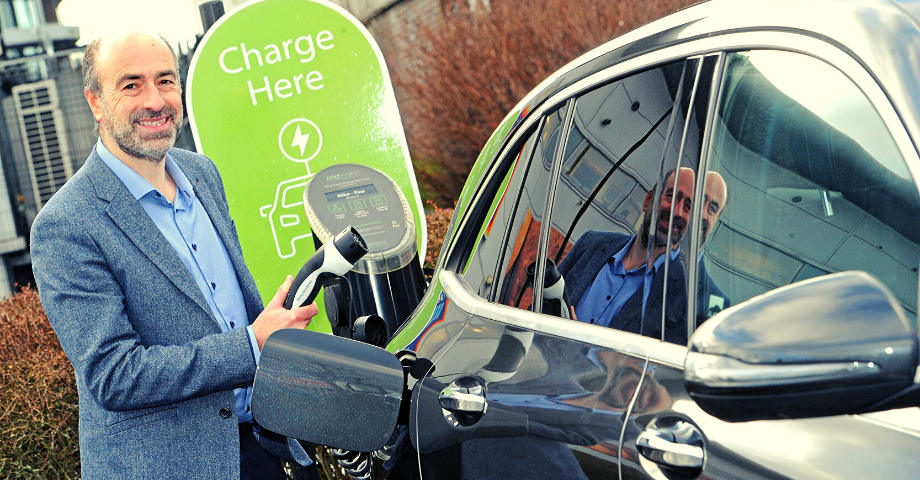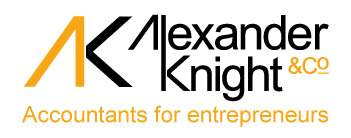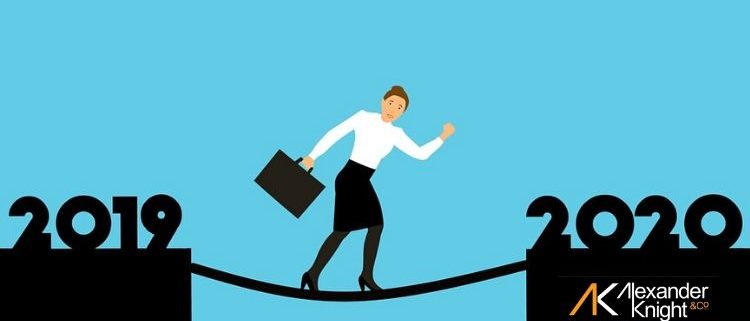Newly Qualified Accountant (ACA / ACCA)
Since launching Alexander Knight & Co in 2012, we have developed a reputation for being the “accountants for entrepreneurs” & our client base includes some of the leading private (and publicly- listed) businesses in the UK & Europe.
We are now looking for an Newly Qualified Accountant to join our fast growing team in 2023. This is a senior position within our team, ideally suited to you if you are professional looking to fast track your career to management level & beyond with your next career move.
The multi-disciplinary structure at Alexander Knight & Co means that this role is flexible and we are happy to tailor it to meet your skills and career aspirations if you’re the successful candidate. Initially, we see the role as focusing on audit and accounts but it will certainly evolve over time.
Essentially the role involves:
– Working proactively in the best interests of our clients & delivering a high quality audit & compliance service.
– Working both independently and in collaboration with other members of the team.
– Reporting directly to senior colleagues, including the founder of Alexander Knight & Co
Specifically, you should have confidence in your ability to:
– Plan and lead on complex audits – both remotely and on-site ✅
– Coordinate across different disciplines within the Alexander Knight & Co team ✅
– Deliver complex assignments through to completion ✅
– Prepare and report on group consolidated accounts both in FRS & IFRS ✅
– Liaise with overseas parent company auditors & advisers ✅
– Share knowledge across the wider audit and tax teams ✅
– Oversee the “onboarding” of new clients ✅
– Recommend positive courses of action for our clients to support them to grow their business & meet their compliance objectives ✅
– Act as a role model for junior members of staff, helping to develop their own skill sets and supporting them to deliver audit assignments professionally, on time and on budget ✅
Prospects
- Full support for achieving your own career ambitions ✅
- Flexible working benefits ✅
- Market-leading salary according to experience ✅
About Us
We are a modern, progressive and forward-thinking accountancy practice & are always looking to develop our practice to best suit the needs of our brilliant team & incredible, loyal clients. A boutique-style firm (ie focusing on advice for owner managers & experienced entrepreneurs), we have developed a reputation as a specialist in working at board level alongside our owner-managed clients.
Largely located in the North West of England (including international clients with UK subsidiaries based in the region), our client base has grown substantially during the past twelve months – thanks to our good reputation for delivering high quality work & having a friendly, proactive approach to accountancy.
We are well connected as a practice & we have excellent professional relationships with other professional advisors, including law firms, financial advisors & banks who recommend clients to us on a regular basis.
We are also active members of MGI Worldwide – one of the world’s largest accounting networks – which enables our team to be universally connected & enjoy working relationships with other members across the globe.
We are based at our own Grade A office in Hale village (Hale Road). We are proud of our modern, vibrant premises & feel that this investment in our surroundings helps to promote a positive & professional culture for our clients & staff & other professional contacts in Cheshire & Greater Manchester who we work with regularly.
We offer a supportive & flexible approach for all our colleagues. Currently we are operating on a “hybrid” basis – a sensible mix of home-working & office-based working which is an agile approach appreciated by our staff & clients. It also enables our team to manage their own work-life balance & support their families during these times. Having been impressed by the success of this, we are passionate about retaining this culture into 2022 & beyond.
Disclaimer
Alexander Knight & Co is an equal opportunities employer and no terminology in this advert is intended to discriminate on the grounds of a person’s gender, marital status, race, religion, colour, age, disability or sexual orientation.
All candidates will only be assessed in accordance with their merits, qualifications and abilities to perform the role expected. Only successful applicants will be invited to the next stage consisting of an interview and assessment.
To apply for this role please email your CV and a covering letter to Alison Spier.
In addition, if you would like a confidential chat about your current position and to see if this next step is suitable please call Alison Spier in confidence on (0161) 980 8788.

Accountants in Hale







 MGI Worldwide was established in 1947 and is the oldest international accountancy network in the world. Annual revenues of all its members top £770m.
MGI Worldwide was established in 1947 and is the oldest international accountancy network in the world. Annual revenues of all its members top £770m.


